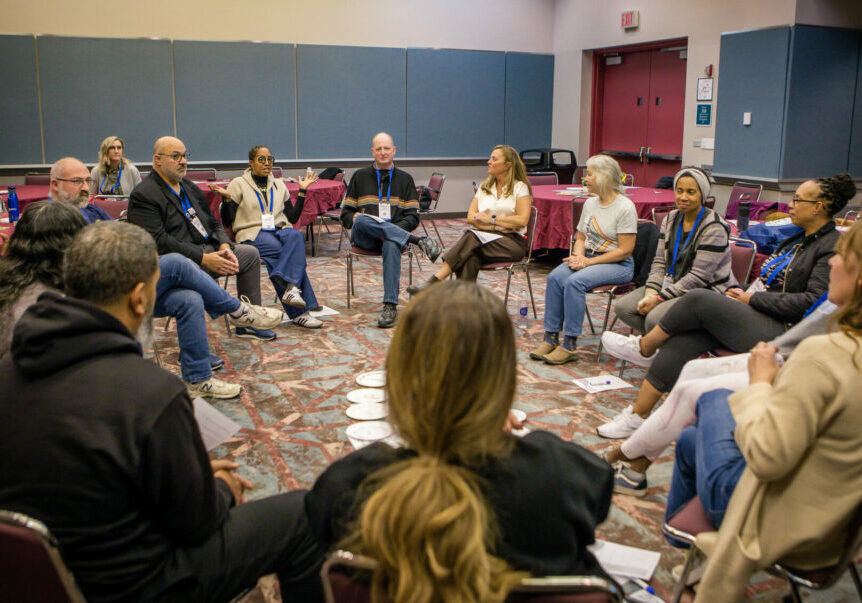By Dawn Howlen
In today’s fast-evolving educational landscape, teachers face the challenge of staying up to date with current teaching strategies, addressing diverse student needs and navigating curriculum changes. Communities of practice (COP) can provide educators with a collaborative model for continuous professional development. Through COPs, teachers engage in shared learning, exchange ideas and solve classroom challenges collaboratively, making this approach more flexible than traditional professional development.
As described by Etienne Wenger, a leading expert on the concept, a COP is a group of people who share common concerns, problems or passions about a topic. They deepen their knowledge and expertise in that area by interacting on a regular basis. In education, COPs often consist of teachers, administrators or other professionals who aim to improve specific aspects of their work, such as classroom management, curriculum design or technology integration. These communities are self-driven and focus on the needs and interests of their members.
The goal of professional development is to enhance student learning, and COPs directly contribute to this goal. When teachers are engaged in continuous learning and reflective practice, they become more effective in the classroom. For example, a teacher involved in a COP on culturally responsive teaching might develop strategies that better connect with students from diverse backgrounds, leading to greater student engagement and success.
One of the most significant benefits of COPs is collaborative learning. While traditional workshops often lack follow-up or application opportunities, COPs create ongoing opportunities for educators to explore new strategies, apply them in the classroom and return to reflect on their effectiveness. For instance, a COP focused on using artificial intelligence might enable members to share best practices and troubleshoot problems as they arise. Peer support is another benefit of COPs. Teachers can sometimes feel isolated, but COPs provide a safe, collaborative space where teachers can share their challenges, seek advice and receive support.
COPs encourage teachers to engage deeply with specific topics over time. Additionally, COPs foster reflective practice, a key element of effective teaching. Educators are encouraged to critically evaluate their teaching strategies and adjust as needed, creating a culture of ongoing improvement that stays responsive to students’ needs and enhances student learning.
COPs foster innovation by encouraging creative thinking and risk-taking in a supportive environment. By collaborating with peers from different backgrounds and experiences, educators can challenge their assumptions and discover fresh solutions to classroom challenges. The collaborative approach allows teachers to experiment with new techniques and adapt their practice based on feedback, ultimately leading to more effective and innovative teaching methods.
Dawn Howlen is an associate director in the NJEA Professional Development and Instructional Issues Division. She can be reached at dhowlen@njea.org.
Register for NJEA communities of practice
The NJEA Professional Development and Instructional Issues Division is hosting three distinct communities of practice this year. We invite you to join us in exploring topics on artificial intelligence, social-emotional learning and thriving during challenging times.
Our purpose is to provide a collaborative space where educators can share knowledge, expertise and best practices. This community will promote equity, inclusion, diversity and belonging in educational practices and spaces, ultimately enhancing student success through empowered and well-equipped educators.
To register, visit learning.njea.org.

